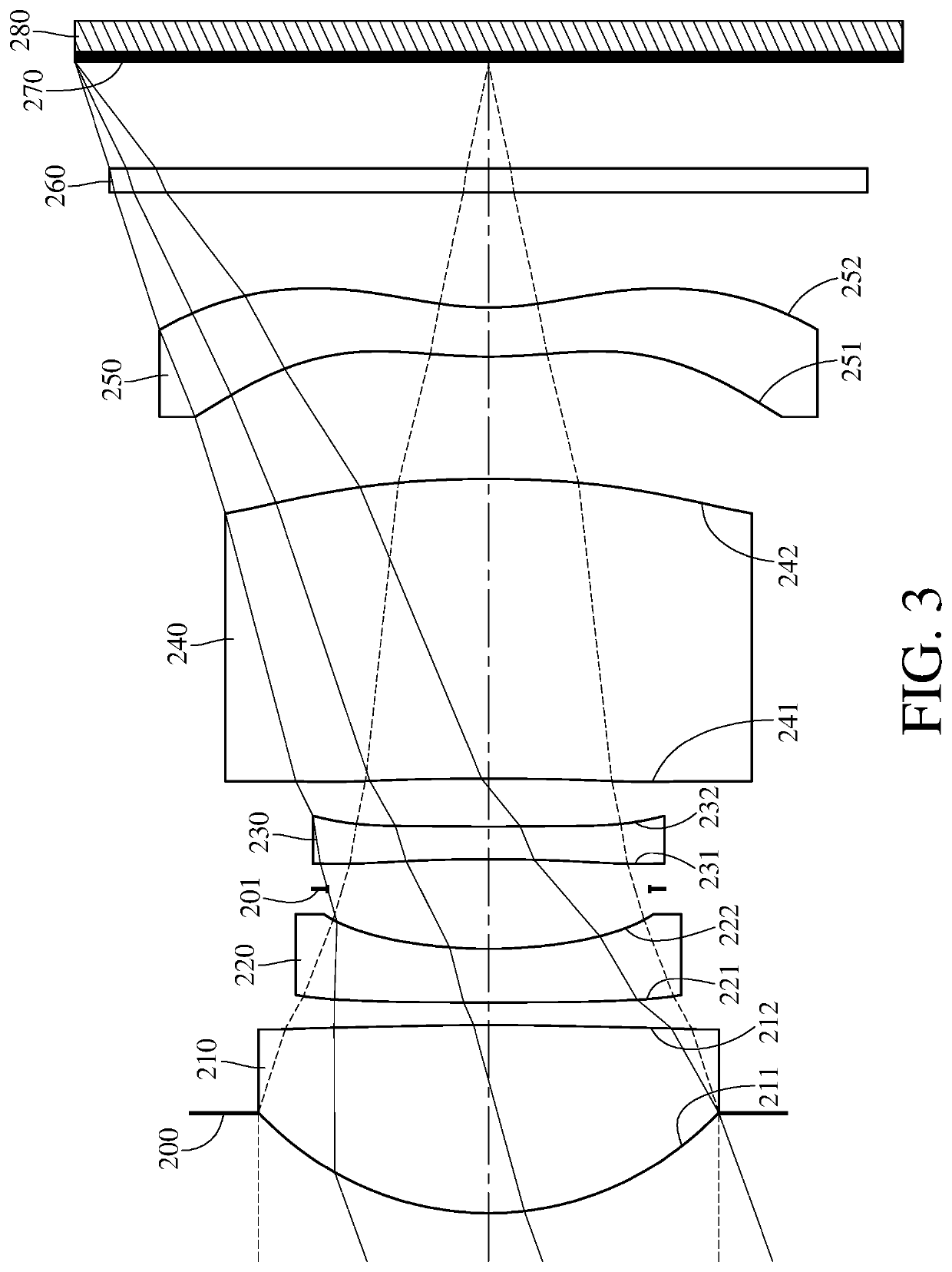Optical imaging lens assembly, image capturing unit and electronic device
a technology of optical imaging and image capturing, applied in the direction of optics, optical elements, instruments, etc., can solve the problem of difficult to obtain a balance for a conventional optical system
- Summary
- Abstract
- Description
- Claims
- Application Information
AI Technical Summary
Benefits of technology
Problems solved by technology
Method used
Image
Examples
1st embodiment
[0077]FIG. 1 is a schematic view of an image capturing unit according to the 1st embodiment of the present disclosure. FIG. 2 shows, in order from left to right, spherical aberration curves, astigmatic field curves and a distortion curve of the image capturing unit according to the 1st embodiment. In FIG. 1, the image capturing unit includes the optical imaging lens assembly (its reference numeral is omitted) of the present disclosure and an image sensor 180. The optical imaging lens assembly includes, in order from an object side to an image side, an aperture stop 100, a first lens element 110, a second lens element 120, a stop 101, a third lens element 130, a fourth lens element 140, a fifth lens element 150, an IR-cut filter 160 and an image surface 170. The optical imaging lens assembly includes five lens elements (110, 120, 130, 140 and 150) with no additional lens element disposed between each of the adjacent five lens elements, wherein there is an air gap between every adjace...
2nd embodiment
[0108]FIG. 3 is a schematic view of an image capturing unit according to the 2nd embodiment of the present disclosure. FIG. 4 shows, in order from left to right, spherical aberration curves, astigmatic field curves and a distortion curve of the image capturing unit according to the 2nd embodiment. In FIG. 3, the image capturing unit includes the optical imaging lens assembly (its reference numeral is omitted) of the present disclosure and an image sensor 280. The optical imaging lens assembly includes, in order from an object side to an image side, an aperture stop 200, a first lens element 210, a second lens element 220, a stop 201, a third lens element 230, a fourth lens element 240, a fifth lens element 250, an IR-cut filter 260 and an image surface 270. The optical imaging lens assembly includes five lens elements (210, 220, 230, 240 and 250) with no additional lens element disposed between each of the adjacent five lens elements, wherein there is an air gap between every adjace...
3rd embodiment
[0119]FIG. 5 is a schematic view of an image capturing unit according to the 3rd embodiment of the present disclosure. FIG. 6 shows, in order from left to right, spherical aberration curves, astigmatic field curves and a distortion curve of the image capturing unit according to the 3rd embodiment. In FIG. 5, the image capturing unit includes the optical imaging lens assembly (its reference numeral is omitted) of the present disclosure and an image sensor 380. The optical imaging lens assembly includes, in order from an object side to an image side, an aperture stop 300, a first lens element 310, a second lens element 320, a stop 301, a third lens element 330, a fourth lens element 340, a fifth lens element 350, an IR-cut filter 360 and an image surface 370. The optical imaging lens assembly includes five lens elements (310, 320, 330, 340 and 350) with no additional lens element disposed between each of the adjacent five lens elements, wherein there is an air gap between every adjace...
PUM
 Login to View More
Login to View More Abstract
Description
Claims
Application Information
 Login to View More
Login to View More - R&D
- Intellectual Property
- Life Sciences
- Materials
- Tech Scout
- Unparalleled Data Quality
- Higher Quality Content
- 60% Fewer Hallucinations
Browse by: Latest US Patents, China's latest patents, Technical Efficacy Thesaurus, Application Domain, Technology Topic, Popular Technical Reports.
© 2025 PatSnap. All rights reserved.Legal|Privacy policy|Modern Slavery Act Transparency Statement|Sitemap|About US| Contact US: help@patsnap.com



